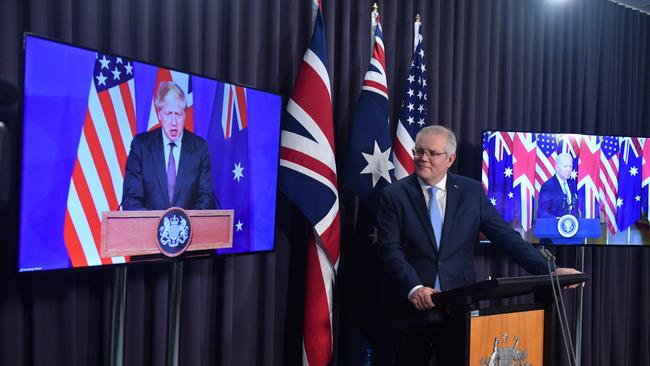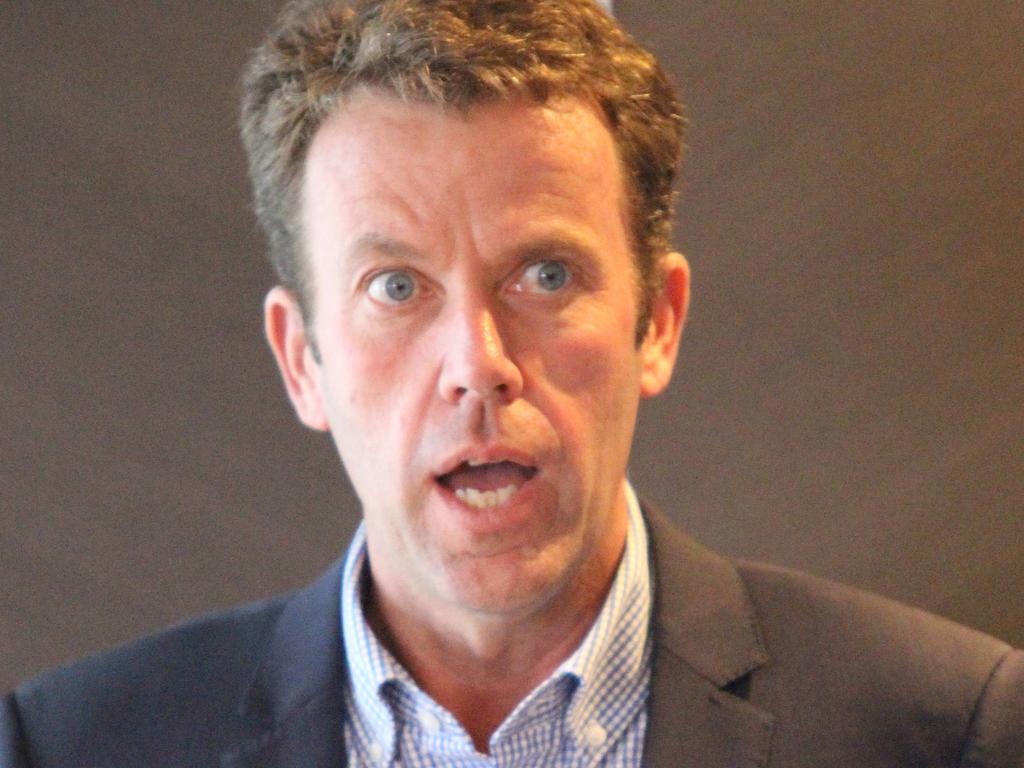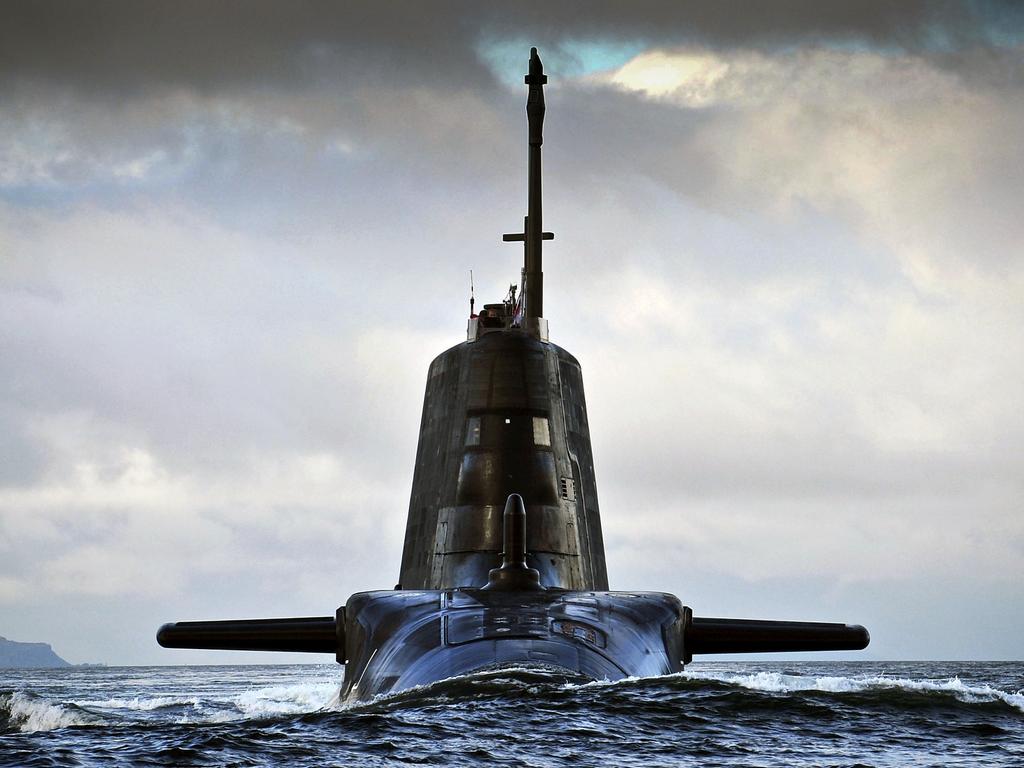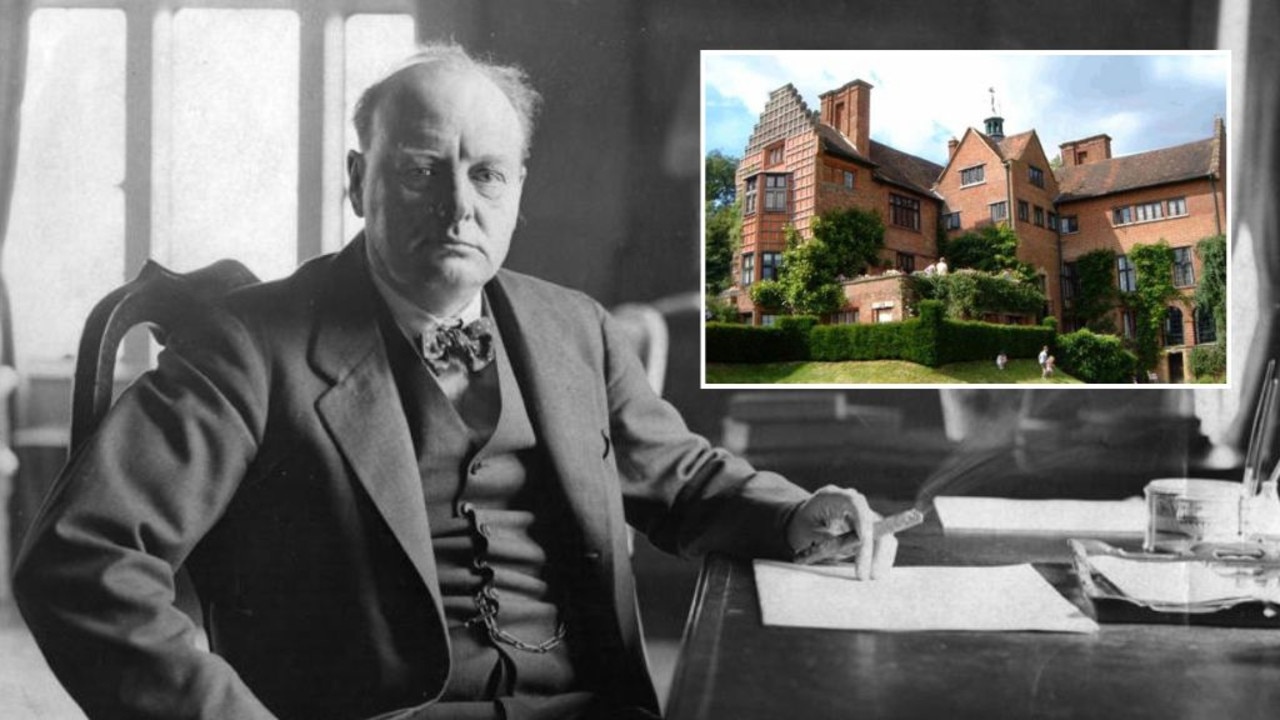World events may decide the next election
Hoping anger over lockdowns will have dissipated, Scott Morrison plans to use fear of China to lock voters in behind him.

Negative campaigning is standard practice in most democracies and you can bet Labor will adopt the same approach. The opposition’s focus will be on the slow vaccine rollout and problems with hotel quarantine, alongside bemoaning big companies that exploited JobKeeper.
The Coalition’s strategy involves no small measure of chutzpah. For example, its economic track record is nothing like what it promised it would be when first elected in 2013. Ending the “debt and deficit disaster” has been replaced by record debt and deficits, with a recession thrown in. But do voters blame the government for events largely out of its control?
Labor is working hard to blame the Morrison government for the current lockdowns, claiming if vaccines had been rolled out more quickly lockdowns wouldn’t be necessary. The overseas experience doesn’t back up that claim, but will voters care? The Coalition is banking on anger dissipating before an election early next year.
On the national security front, Scott Morrison plans to use fear of China to lock voters in behind him, arguing that Labor is weak on national security. Incumbents usually do well at khaki elections, especially conservative governments. But is the threat of a new cold war akin to a khaki election?
A new submarines deal with the US was announced this week that Morrison hopes to exploit politically. But it’s a deal born out of necessity and off the back of procurement failures after the Coalition comprehensively butchered its submarine contract with the French. But will such nuance be lost of voters? I suspect it will.
The third leg in the Morrison re-election strategy will be to demonise Anthony Albanese. There are superficial question marks over whether Albanese is a viable alternative prime minister, but there shouldn’t be. His experience is apposite for the position.
Elected in 1996 when John Howard became prime minister, Albanese spent nearly 12 years learning the parliamentary ropes from opposition. He then spent the better part of six years as leader of the House of Representatives and a member of the leadership group in the Rudd and Gillard governments, briefly becoming Kevin Rudd’s deputy prime minister when Rudd returned to the top job ahead of the 2013 election defeat.
It is an old-fashioned resume for an opposition leader, more in the mould of a Howard than a Morrison or Malcolm Turnbull, who served shorter parliamentary apprenticeships before becoming leaders. As infrastructure minister Albanese held a portfolio that put him in the thick of key economic decision-making in the wake of the global financial crisis, a time not that dissimilar to now.
However, I suspect none of these machinations is likely to decide the next election. More likely both leaders will be beholden to events largely out of their control. How does the world respond to Covid-19 in coming months? Does a new strain emerge in the northern hemisphere as it enters winter? Do vaccination rates peter out too early to open up the economy? What about the differences between the states, and the increasingly hostile relationship between some Labor premiers and the federal government?
To be sure, most of these challenges are downside risks for Morrison, not Albanese. But oppositions win elections only when there is an “it’s time” factor among voters. Can Morrison avoid that sentiment even though he’s leading a government seeking a fourth term in power?
While Morrison remains the favourite to win, winning a fourth consecutive term in office is never easy. Robert Menzies did it, but the Labor Party of the 1950s and ’60s was hopelessly divided, with the DLP split making winning government that much more difficult for Labor. Malcolm Fraser failed in his attempt to win a fourth term in 1983. Bob Hawke won one for Labor in 1990, but only just. Andrew Peacock’s opposition won more than 50 per cent of the two-party vote, just not in the seats that mattered. Howard won a fourth term against Mark Latham in 2004, but Latham imploded in a way few major party leaders do. He really was a one-off.
You can bet Morrison would relish replicating Howard’s achievement by winning a fourth term for the Coalition. He’d chalk it up as a marketing coup.
Albanese’s biggest problem is that incumbents tend to succeed in times of upheaval, and the pandemic is certainly such a time. And as much as it is true that winning fourth terms is hard for governments, of the post-war governments three secured a fourth term and three failed to do so. It is evenly split, and the fact there have been only seven governments during the past 70 years or so is telling in and of itself.
Finally, I wanted to say something about Christian Porter and his need to step down from the ministry for a lack of disclosure over exactly how he funded his legal bills suing the ABC for defamation.
There is no question it is intolerable for Porter to hide those donors and remain a minister. As much as you can understand why people willing to fund his campaign might not want to be known publicly – the lynch mob that has lost sight of the importance of due process is a modern reality, unfortunately, and it would come for each of them one by one – no minister can accept funding from unknown sources.
As an academic and journalist, I have called for transparency in this space for many years. The Porter saga now also raises genuine concerns about crowd-funding. Such donations are usually smaller than what we assume Porter’s individual donations might have been, but they are often also anonymous, and numerous micro-donations very easily could compromise MPs who are on the receiving end of such support.
While it is unsustainable for Porter to remain a minister when receiving hidden donations, his likely downfall for having done so doesn’t change one simple reality: under our legal system he is an innocent man who hasn’t been accused of a crime. His settlement with the ABC made the point that its reporting did not in any way prove his guilt or even cast any doubt on his innocence. A modern-day mob, led by individuals who don’t respect the rule of law despite a number of them studying it, will succeed in forcing him out of higher office. That is nothing to celebrate.
Perhaps in the fullness of time further disclosures will shed light on just how nefarious the campaign to get Porter really was.
Peter van Onselen is a professor of politics and public policy at the University of Western Australia and Griffith University.







The Coalition is gearing up for an election campaign spruiking one simple message: don’t trust Labor. Not on the economy, not on national security.